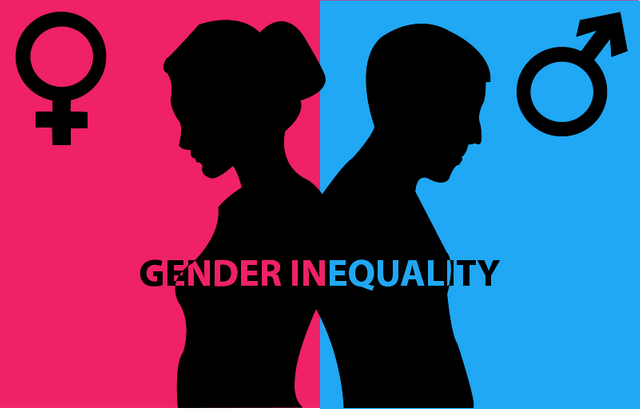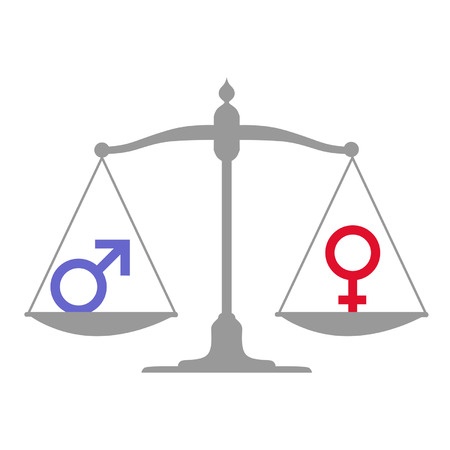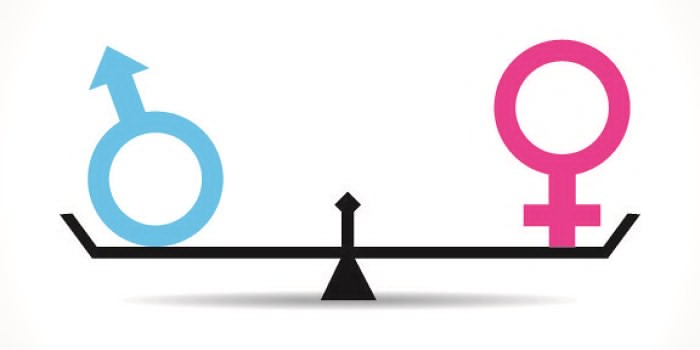Gender Inequality: A relevant issue.
Ridgeway, C. define gender inequality as a “system of social practices” that create males and females as distinct and formulate a relationship between them based on the assumed differences.

(Photo source: google)
In 2010 MedicalNews.Net stated in an article, "Nearly 100 million women across Asia have 'disappeared' because of a huge and growing gender gap that has fatally deprived them of access to health care and food and has led to widespread abortions of female fetuses, according to a U.N. Report,". These are just a few of the existing dilemmas faced due to gender inequality. To fight this gender- based gap, governments and different organizations collaborated in formulating laws and policies. Hence, from which the Convention on the Elimination of All Forms of Discrimination Against Women (CEDAW), popularly known as the “bill of rights” for women came into existence.

(Photo source: google)
After all of the long walk to dilute inequalities, the fact still remains that women have a fewer opportunities compared to men in many aspects.
In the Philippines, for example, according to the report of Motoo Konishi, Philippine World Bank director, Philippines is advance in gender and development in many ways. However, there is still inequality in the opportunity to manage enterprises in the Philippines. On his report co-authored by Ximena del Carpio, senior World Bank economist, “Only about 30 percent of medium-sized enterprises have female managers, while just about 20 percent of large enterprises have female managers”. In an attempt to solve this present problem, many organizations have already initiated movements to fight gender discrimination. Last September 20, 2014, United Nation launched its HeForShe campaign design to encourage more men to become an advocate of gender equality. Continually, women in the Southeast Asia receives a favorable positioning compared to its neighboring countries.

(Photo source:google)
To elaborate, Philippines has promulgated the Republic Act No. 9710, The Magna Carta of women, a comprehensive women`s right law that aims to protect every Filipino women, promotes its rights and seeks to eliminate gender inequality.
Gender inequality has deeply rooted in history, religion, norms and traditions.
“In the19th century, the entire Southeast Asia except for Thailand was under the European control. Women were recruited as cheap wage labor and male was positioned as head of the household. Although Thailand was not colonized, their patrilineality culture still influences the desire for a son rather than daughters.” Andaya, B.
Majority of the communities in the Southeast Asia are regulated by men, for which some norms and traditions thought that “girls are born to be fed throughout their lives" and "boys are born to earn and support the whole family". With that, the birth of a son is celebrated compared to the birth of a daughter which is not welcomed.
Gertler and Alderman identified on their research, two reasons why parents nurture boys than girls through education and health. Primarily, the girls` return from school is subordinate than that for boys. A second possibility is that the social returns may be equal in educating boys and girls, however, sons normally provide their parent during old age, while daughters were expected to leave their parents when they got married and become a part of a new household.
Moreover, Schwab Bakombo wrote on his blog article that, Some religions indoctrinate that Adam was created first and Eve afterwards. This article of faith was interpreted by some norms and cultures “that women are inferior to men in principle”.
This leads to the conclusion that, despite of the laws and regulations that were already implemented to protect the rights of women, however, social and cultural practices are already infused.
Various studies have proven that gender equality had many positive impacts on individuals and as well as to the society at large. According to the study performed by Credit Suisse Research Institute entitled "The CS Gender 3000: Women in Senior Management", company with higher gender equality level and enhanced female participation in the management position improves company's financial performance. They have also found out that “female CEOs, tend to mean higher leverage, in stark contrast to the generally accepted association of women and financial conservatism,". Thus, increasing women participation in the workforce and management position is not just a ‘nice-to-have’ or just a must to satisfy quotas but, female shares of high skilled occupations show gender segregation in employment.
After all, when both men and women have a fair access to health, education, workforce and has the same voice and influence to the society, growth and development is faster. Thus, promoting gender balance is important to achieve human and economic development.

Thank you for reading! Please follow me @euryl.
Congratulations @euryl! You received a personal award!
Click here to view your Board
Congratulations @euryl! You received a personal award!
You can view your badges on your Steem Board and compare to others on the Steem Ranking
Vote for @Steemitboard as a witness to get one more award and increased upvotes!